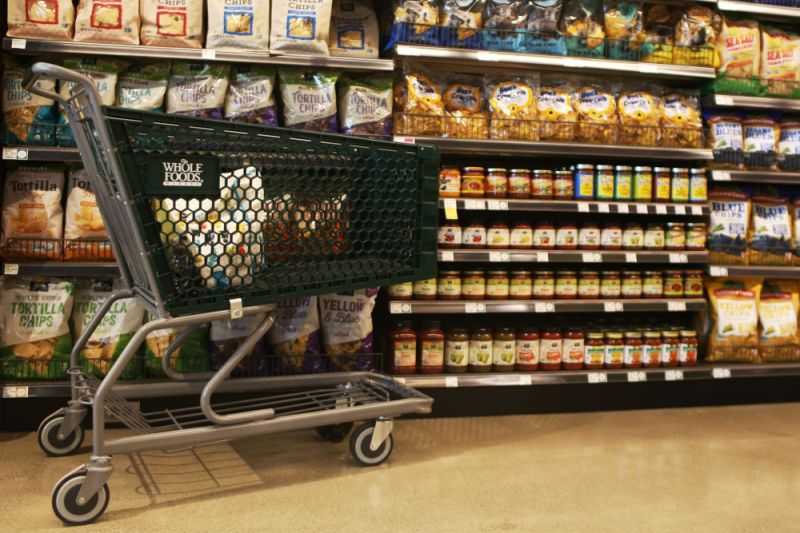
(Bloomberg) — Amazon.com Inc. suffered a technical glitch on Sunday affecting online grocery orders through its Whole Foods and Amazon Fresh delivery services, which have become lifelines for household essentials for people looking to avoid stores due to the coronavirus outbreak.
“As COVID-19 has spread, we’ve seen a significant increase in people shopping online for groceries,” an Amazon spokeswoman said in a statement. “Today this resulted in a systems impact affecting our ability to deliver Amazon Fresh and Whole Foods Market orders tonight. We’re contacting customers, issuing concessions, and are working around the clock to quickly to resolve the issue.”
The disruption also affected Prime Now orders, according to an internal Amazon memo reviewed by Bloomberg.
Panic buying that has left store shelves empty is also straining Amazon’s delivery capacity. Around the country, Amazon staff reported long lines to enter delivery stations and delays getting items they were supposed to deliver. Amazon notified delivery drivers Sunday evening about a “technical issue that is causing a delay to Prime Now, Amazon Fresh and Whole Foods Markets orders being assigned to delivery partners,” according to the company memo.
Jordan Insley, a resident of Woodinville, Washington, who pays $120 a year for Amazon Prime fast-delivery service, said he is considering canceling his membership since he hasn’t been able to rely on the online retailer for essentials like laundry detergent, garbage bags and bottled water since shortly after the outbreak began in the Seattle region. Amazon warned shoppers on March 2 that surging demand was overwhelming its delivery capacity.
“If you’re paying for Prime, you’re paying for a service that doesn’t exist,” he said.
Some shoppers took to social media to vent about grocery shortages using the hashtags #panicbuying and #coronapocalypse.
(Updates with shopper comment in sixth paragraph.)
To contact the reporters on this story: Spencer Soper in Seattle at [email protected];Ed Ludlow in San Francisco at [email protected]
To contact the editors responsible for this story: Alistair Barr at [email protected], Jillian Ward, Peter Elstrom
<p class="canvas-atom canvas-text Mb(1.0em) Mb(0)–sm Mt(0.8em)–sm" type="text" content="For more articles like this, please visit us at bloomberg.com” data-reactid=”29″>For more articles like this, please visit us at bloomberg.com
<p class="canvas-atom canvas-text Mb(1.0em) Mb(0)–sm Mt(0.8em)–sm" type="text" content="Subscribe now to stay ahead with the most trusted business news source.” data-reactid=”30″>Subscribe now to stay ahead with the most trusted business news source.
©2020 Bloomberg L.P.











Add Comment